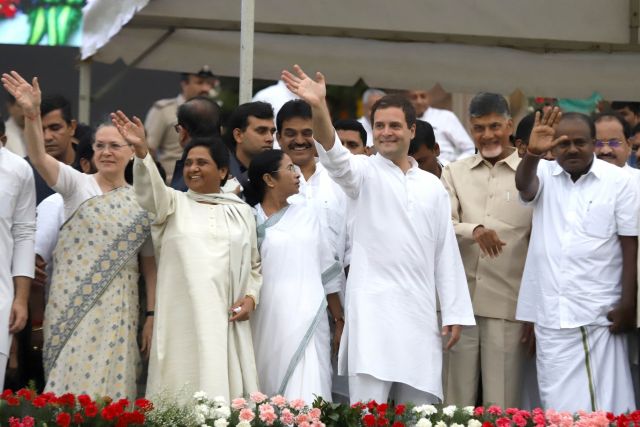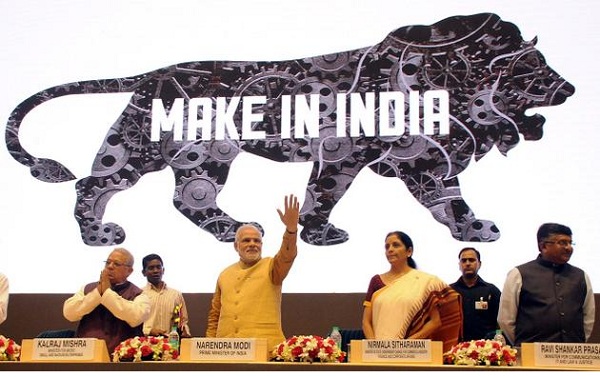
Saving Karnataka government is vital for opposition unity
Even as various formulas are being worked out by the opposition at the national level for taking on the Bharatiya Janata Party (BJP) in 2019, including forming alliances which may not be the same in every state, the first test as to whether such khichdi or hodge-podge groups can be politically effective will be the lifespan of the Janata Dal (Secular)-Congress government in Karnataka.
If it fails to survive at least till the next general election, then all the hopes of the non-BJP parties coming together against the BJP will evaporate. It is unfortunate for those planning a confrontation with the BJP that the current signs about the longevity of the H.D. Kumaraswamy government in Karnataka are not very reassuring.
Having been uncharacteristically magnanimous about letting Kumaraswamy of the JD-S become the Chief Minister although he is the junior partner in the coalition, the Congress now appears unable to accept the reality of its No. 2 position despite winning 78 seats in the 224-member assembly to the JD-S’s 37.
Hence, the current differences between the two parties over the presentation of a full budget, which is what the Chief Minister wants, apparently to leave his personal stamp on the fiscal policy. The Congress, however, objects to it since the former Chief Minister, Siddaramaiah, had presented the state’s budget earlier and evidently doesn’t want his plans to be summarily brushed aside.
It is also no secret that relations between the present and former chief ministers have not been cordial ever since Siddaramaiah crossed over from the JD-S to the Congress on realising that Kumaraswamy was the former Prime Minister H.D. Deve Gowda’s choice as his successor in the party.
Since there have been tussles between the two parties over ministerial berths as well, it is not surprising that Bengaluru was rife not long ago with rumours about the BJP toppling the Kumaraswamy government. It goes without saying that any impression about the instability of the ruling alliance will enable the BJP to mock the national opposition’s efforts to combine against it.
As it is, ever since the Janata Party’s collapse in the late 1970s, the idea has gained ground about the inherent fragility of coalitions at the national level although they have been quite successful in states like Kerala and earlier in West Bengal. In New Delhi, however, neither the Janata Party of Morarji Desai, Charan Singh and Jagjivan Ram of 1977, nor the Janata Dal of V.P. Singh, Devi Lal and Chandrashekhar of 1989, could last for any length of time
The machinations of the Congress were one reason for the short lifespan of these combines. It was the same in the 1990s when the Congress brought down the H.D. Deve Gowda government at the Centre and paved the way after I.K. Gujral’s brief interregnum for the BJP to come to power.
Perhaps the time has come for the Congress to show that it has got over its self-perception of being the natural party of governance in Lutyens Delhi and let others also have their days in the sun. Whether or not such a change in the party’s outlook has taken place will become clear by its role in Karnataka.
It is a test of leadership not only for the Congress as an organisation, but also for Rahul Gandhi, who has to show that he is not like his grandmother, Indira, or uncle, Sanjay, who conspired to seal the Janata Party’s fate in 1979, or like his father, Rajiv, who pulled the rug from under V.P. Singh’s feet with Chandrashekhar’s help in 1990.
Since by his own admission, he aspires to be the Prime Minister if the Congress wins a sizeable number of seats, he has first to show his capability of controlling his notoriously fractious party and then of accommodating his allies. As far as groupism is concerned, Karnataka presents less of a challenge to the Congress president than, say, Madhya Pradesh where the number of heavyweights in the party is larger — Kamal Nath, Digvijay Singh, Jyotiraditya Scindia — but Rahul’s success or failure in Karnataka will send the required message to the other states as well.
If he can ensure a measure of calm in Karnataka, it will signal his arrival as a person who has it in him to lead the 133-year-old Grand Old Party although it is known to be well beyond its prime at the moment. Unlike Madhya Pradesh or Rajasthan, where the Congress has been out of power for a decade and a half and, therefore, is in a chastened frame of mind, Karnataka is different because it was in power on its own till recently and is now in office with an ally. The attitudes and ambitions of the local Congress leaders are more assertive as a result.
The challenge for Rahul, therefore, will be greater than what he has faced so far. Moreover, it will serve no worthwhile purpose for him to depend on Sonia Gandhi to make any of the restive members fall in line. He has to demonstrate that he alone is at the helm. However, Rahul’s task will be more difficult than either what Sonia Gandhi experienced when the Congress unexpectedly won the 2004 election or what Rajiv Gandhi faced when he became the Prime Minister after Indira’s assassination in 1984.
(Amulya Ganguli is a political analyst. The views expressed are personal. He can be reached at amulyaganguli@gmail.com)
—IANS

